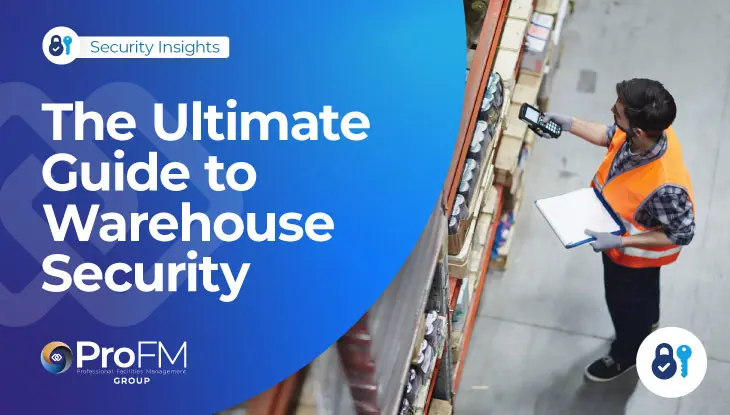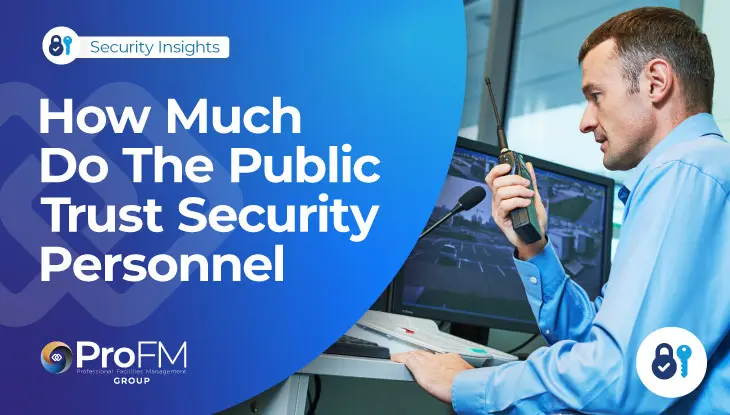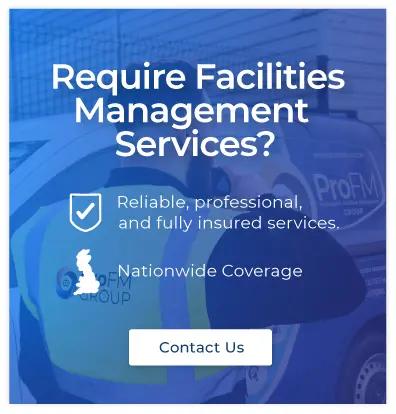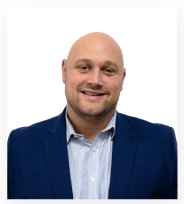Security is a diverse field, and while qualifications and levels of training help distinguish what is needed to stay protected, a close protection officer provides the ultimate, one-on-one coverage. Often called “bodyguarding” or “security detail”, close protection services are essential for those with significant concerns around their public safety.
As part of our guide, ProFM Group seeks to explore what a close protection operative is and what they can do, how they operate alongside public figures and VIPs, and why close protection services are so sought after. We’ll also discuss their importance in key, high-risk situations, and the solutions they deliver that justify their higher price tag.
What Is A CPO In Security?
If you’re wondering, what does CPO stand for in the security industry? CPO stands for Close Protection Operative. This is the more technical name given to what many of us see as bodyguards or personal security specialists, and they’re often recommended for high-net-worth individuals or recognisable people, like celebrities, politicians and sportspeople.
Their primary role revolves around offering executive protection, protecting their clients from harm or theft, and ensuring safety at all times. It’s a highly qualified role, with the baseline qualification starting at around £2,000 through trusted provider GetLicensed, and many close protection officers supplement that with a background in the police or the military.
For that reason, operatives providing close protection services are viewed as being among the most dedicated security professionals. We’ve seen it time and again, with ProFM’s close protection officers providing crucial protective services across everything from local elections to photoshoots in some of the UK’s biggest and most dangerous cities.
All of that training, focus and investment in a future in the security services industry positions CPOs as an ideal accompaniment for those who are concerned about personal safety.
What Are The Different CPO Roles?
A Close Protection Officer can specialise in key aspects of the protective role, including evasive driving, tactical first aid, and professional event security for single or multiple VIPs. Each of these specialisms enables a more in-depth approach, providing a service that truly encapsulates the essence of being a CPO.
That includes:
- Bodyguarding. These private security professionals are tasked with the protection of a single person, alongside other bodyguard duties such as devising mobilisation plans, securing transportation options, managing crowds, plotting out exit routes, and offering personal physical protection.
- Security Chauffeuring. A security chauffeur will be responsible for transporting the client and any accompanying family or friends. They’ll have received extensive training in evasive driving manoeuvres, as well as how to respond to threats or risks while driving.
- Advance Security Party. Often reserved for more at-risk clients (like high-ranking politicians), this is the more covert side of close protection. They’ll take charge of the “behind-the-scenes” work, like arranging documents and passports, alerting any necessary staff to the client’s presence, and surveying the location ahead of the client’s arrival.
- Residential CPO. These close protection operatives will develop a comprehensive familiarity with your home, as well as any temporary accommodation, like a hotel or resort. Their roles will involve monitoring any CCTV cameras, performing routine patrols, and securing all possible entry points.
- Event Close Protection. Recommended for VIPs with a packed calendar of events (such as musicians or performers), personal security at events is delivered by CPOs with extensive training in reconnaissance, threat detection, and covert surveillance during any performances.
But while a CPO can develop a specialism in key areas of personal protection, there’s a range of different roles that stay consistent across all aspects of private security.
What Duties Does A Close Protection Officer Have?
As part of an intensive, multi-week course, a close protection officer is trained in advanced tactics for threat and risk assessment, conflict de-escalation, situational management, reconnaissance and surveillance, and operational planning. All of these elements combine to provide a comprehensive approach to one-on-one security.
However, while that training is an integral part of the journey, certain parts of it will naturally come to the fore more than others. Here are the key aspects of training that we consider most crucial roles of a CPO and their day-to-day responsibilities.
1. Understanding Dynamic & Evolving Threats
For any VIP or high-net-worth individual, the threats they face are constantly changing. A key stipulation for any CPO is recognising and responding appropriately to changing risk factors, and – above all else – keeping their client safe in response to those.
A CPO will need to understand intimately how these changes can affect their client and make adjustments accordingly. They’ll have completed in-depth risk assessments, performed reconnaissance, liaised with any on-site staff to keep them on alert, and devised multiple contingency plans.
There are multiple situations where this could be necessary. It may be a change in environment (like travelling through airports or railway stations), evolving circumstances surrounding the client and their work (such as political tensions), or external concerns like rising crime rates.
2. Planning Tactically & In Detail
The work of a close protection officer begins well before their client leaves their home or place of residence. The best close protection operatives will take the time to consider every aspect of what they need to do, taking the time to plan for:
- Who needs to be aware of the plan (if working as part of a team)
- Arrival and departure times
- Any time when the client will be unprotected (meetings, appointments, etc.)
- Routes and alternate routes, alongside current traffic/road conditions
- The client’s schedule (essential if they’re in a role where timings can be irregular, such as acting or sports)
- Routes to the emergency services if necessary
For many close protection operatives, this is what will occupy the majority of their time. Poor planning results in poor outcomes and service for the client, ultimately leading to a loss of trust.
3. Communicating Effectively & Clearly
The role of a CPO is so grounded in practical and clear communication that it must form part of their training and subsequent development. That could be in plans for the client (such as where the CPO will be positioned during a press event or photoshoot), plans with a team (essential in coordinating movement plans) or arranging for overseas or cross-country travel.
Clarity and conciseness in how a CPO communicates ultimately contribute towards keeping their client safe and in completing their duties effectively. That formed the crux of a package ProFM delivered for a renowned member of the racing community, providing uninterrupted and incident-free support across multiple race days at some of the UK’s most renowned venues.
4. Effective, One-on-One Protection
Arguably, the most significant part of any close protection officer’s day-to-day, protecting their client (usually called the “Principal”), is what occupies the bulk of any qualified CPO’s time. For many, that’s the main expectation from a close protection operative, and it’s what the official training will emphasise.
While a CPO or private security operative is primarily there as a deterrent, they need to be prepared at all times to intervene should the worst happen. A safe, protected environment is essential, and it’s the responsibility of the close protection operative to ensure that.
Seamless Coverage With CPOs From ProFM Group
With the risks that face VIPs constantly evolving, partnering with a trusted provider of close protection services has never been more pressing. With trained private security professionals on standby to deliver close protection, ProFM have delivered countless solutions for some of the world’s most recognisable people.
Be sure to contact us today to discuss your expectations and how ProFM can exceed every single one of them.
 Sales:
0808 196 2872
Sales:
0808 196 2872
 Support:
0344 477 9991
Support:
0344 477 9991
 Contact Us
Contact Us
 Staff & Client Login
Staff & Client Login



